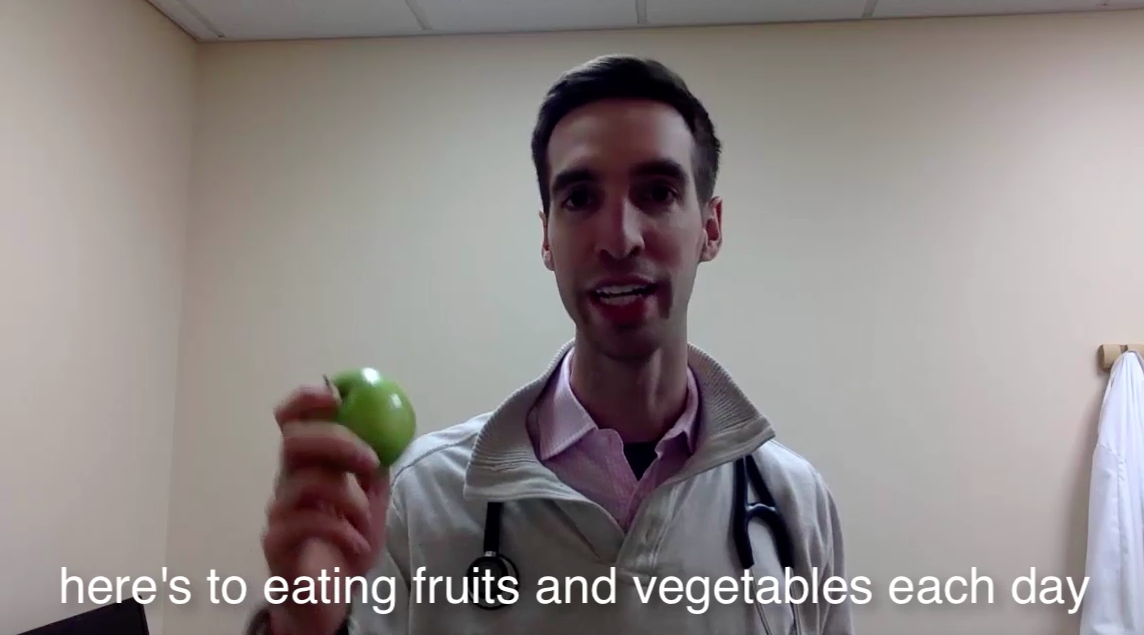Plum Health Blog
How many calories should I eat each day?
How many calories should I eat each day? This is a question that my patients commonly ask of me and there is not a one-size-fits all answer. There are several steps to finding the appropriate calorie intake on a daily basis. One of those steps is calculating your basal metabolic rate.
Once you know your basal metabolic rate, you can add in the amount of calories that you burn each day from exercising. If you jog for 30 minutes each day, you may burn about 200 calories. If you do yoga for 30 minutes each day, you can burn around 150 calories.
Take the number of calories burned in the day and add that to your basal metabolic rate. If you have a reasonably stable weight, you can estimate that you are taking in about that calorie total in your diet.
Then you have to consider your weight goals. Are you trying to lose weight or gain weight? If you seek weight loss, then removing 100 - 200 calories from your diet each day may be a safe number for you to achieve your goals. Remember, in general, it is unsafe to lose more than 1 - 2 pounds each month.
Using an app like MyFitnessPal can be really helpful, especially if you are meticulous about documenting the foods that you consume and workouts that you perform each day. If you're a patient with Plum Health, I will review your data in the App and then we can make better decisions about dietary changes and exercise regimens.
In general, my opinion is more about eating healthier foods, not necessarily less food. I recommend eating foods discussed in "The End of Dieting", found on Amazon here: http://amzn.to/2snb78z
In it, Dr. Fuhrman recommends eating GBOMS, Greens, Beans, Onions, Mushrooms Seeds and Nuts. The point is to get more nutrients/calorie and he sums it up this way: Health = Nutrients/Calorie. The more nutrients per calorie, the better your health.
Kale, Bok Choy, Quinoa, Blueberries, Almonds, Walnuts, Wild Caught Salmon are a handful of examples of highly nutrient dense foods! This would be in contrast to Iceberg Lettuce, bananas, peanuts, and ground beef - these foods are less nutrient dense then the aforementioned foods.
Making healthier food choices, especially those foods that are nutrient dense, can help you to be healthier. Further, if you make organic selections, you will have less toxins in your body. Physician and author Dr. Mike Dow discusses the importance of eating organic foods in his book The Brain Fog Fix.
I hope that this is a helpful and comprehensive answer for you! Thanks for reading, and have a wonderful day,
- Dr. Paul Thomas with Plum Health Direct Primary Care in Detroit, Michigan
Health Benefits of Plums
Plums are a great source of fiber and vitamin C. I recommend eating 4 - 5 fruits and vegetables each day, and Plums can be a great part of this. When you eat a healthy balanced diet, you don't need to take as many supplements; the foods that are available for consumption have all the essential vitamins and minerals that we need to be healthy.
As an update, we were recently featured in Crain's Detroit Business, so a big thanks to their editorial staff and Mark S. Lee for giving me the platform to spread the word about Direct Primary Care. Here's a video update:
Thanks for reading and watching, and have a wonderful day! Also, Happy April Fool's Day!
- Dr. Paul with Plum Health DPC
An Interview with Dr. James Blessman
Today, I attended the monthly Wayne County Medical Society meeting. There were several topics discussed and my mentor Dr. James Blessman brought up an upcoming lecture. Dr. Joel Fuhrman will be at the Detroit School of Arts on February 2nd, 2017 at 6 pm (doors at 5 pm). There's more information at this link. Full video of the interview is below!
During the meeting at the Wayne County Medical Society of Southeast Michigan, several topics were discussed. Currently, the Detroit Public School system stresses abstinence first in their curriculum. This does not mean that the DPS teaches abstinence only, so a group of Medical Students from Wayne State University School of Medicine came to the meeting to clarify the curriculum and obtain the Medical Society's support.
Additionally, the Medical Society discussed burnout and health habits among physicians, the recent increase in Hepatitis A cases in Wayne County, and the recent publication of a Human Trafficking Awareness video. As for the Hepatitis A, you can receive a shot for $10 via the Wayne County Health Department in Wayne, Michigan. At Plum Health, we wholesale the Hepatitis Vaccine for about $70 and in the insurance world, coverage varies depending on which private insurance company you use.
Dr. Blessman also brought up Joel Fuhrman, MD and his upcoming lecture at the Detroit School of Arts on 123 Selden Street in Midtown. The event will be held on February 2nd at 6 pm. Dr. Fuhrman is a leading thinker in the area of medical nutrition, with several best-selling books on the subject. He has been noted to say that the foods that you should eat include the "GBOMBS", or Greens, Beans, Onions, Mushrooms, Berries, and Seeds. The main point is that you want to have more micronutrients in the foods that you consume.
Thanks for reading, and watch the video below!
- Paul Thomas, MD




